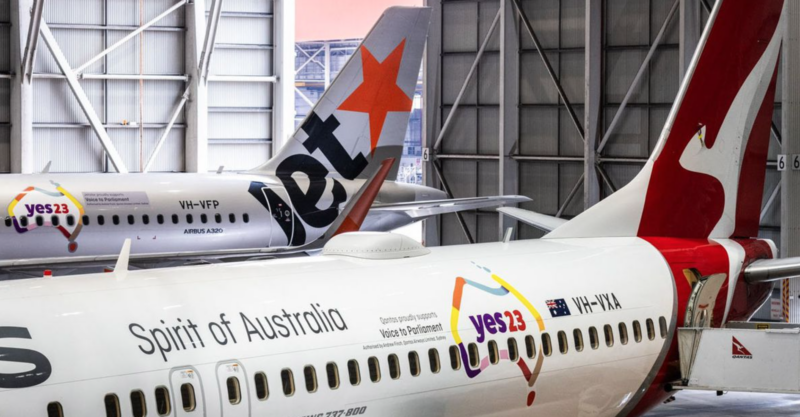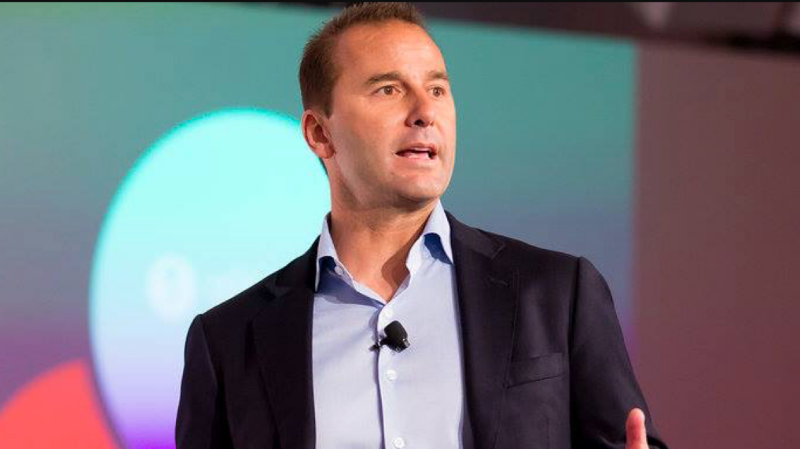Corporate Australia has a trust problem – and it’s getting worse
How much do we trust corporate Australia?
Roy Morgan’s Risk Monitor delivers a brutal assessment of how Australians feel.
“Greedy,” “corrupt,” “too much access to power” and “absence of professional integrity” are some of the choice phrases the nation has for corporate Australia. It makes for an ugly word cloud.
The survey result was an alarming one. As of June 2023, distrust of corporations is the worst on record since Roy Morgan began measuring sentiment more than five years ago.

It doesn’t need much explanation of how we got here. The nation’s confidence has been pummelled by a series of corporate missteps and misdeeds: the PwC tax scandal, data breaches at Optus and Medibank, and most recently, the ACCC case against Qantas (which actually happened after the Roy Morgan survey period, but followed mounting customer service problems at the airline).
Why are we talking about this again? After all, it’s the third time this year we’ve tackled the topic of distrust in the Weekend Mumbo.
The feeling was directed towards journalists and government the first time around and towards brands on the second occasion.
But there’s a new angle to it now: this negative sentiment could have political and social implications, because of the upcoming referendum.
Let me explain. In May this year, former WA Treasurer and Perth-based director Ben Wyatt predicted that many Australian companies would eventually back the Indigenous Voice to Parliament, despite there being only a handful of public corporate supporters at the time.
He was right: a little more than a month later, the majority of the top 20 ASX-listed companies had publicly endorsed the Voice.
In an opinion piece penned for The Australian Financial Review outlining why the Voice matters to businesses, Ming Long, who’s on the board of major companies including Telstra and IFM Investors, said:
“As directors, our duty is to the organisations we lead.
“The Voice embodies a fundamental business principle: that incorporating the perspectives and needs of stakeholder groups – in this case, Aboriginal and Torres Strait Islander peoples – when properly represented and considered in the decision-making process leads to better outcomes.”
There’s significant weight attached to corporations throwing their support behind the Yes campaign.
It gives the cause heightened visibility within society and fosters a sense of validity. If reputable companies, that are answerable to shareholders, and aim to build a “sustainable and resilient future for our country” – like Long said – have chosen to support a Yes vote, then surely that provides greater impetus to the campaign.
Unless the trust in what these companies say is gone.
Then, the question becomes whether corporate support for the Yes side could actually hurt the campaign, more than it helps.
Take Qantas again as an example. Not long before the ACCC case relating to tickets being sold for 8,000 cancelled flights was announced, the airline declared its support for the Yes campaign by putting the Yes23 logo onto three aircraft.
By this stage, many Australians had already lost their faith in the national carrier, which had slipped from one of the most trusted brands in the country, to Australia’s 13th most-distrusted company, according to Roy Morgan.
The then-group CEO Alan Joyce said the Yes endorsement demonstrated Qantas’ commitment towards reconciliation and, more broadly, the notion of a “fair go”.
A ‘fair go’ feels slightly disingenuous, coming from the airline that:
- Kept passengers on hold for hours on end, waiting for customer service
- Outsourced the jobs of 1,700 ground crew in 2020, a move that was ruled illegal by the federal court (though since appealed by Qantas)
- Lost countless bags, and cancelled and delayed flights
- Posted a record $2.47 billion profit in the last financial year, when the federal government had provided $2.7 billion in taxpayer-funded support to the company during COVID
- Supported the government’s decision to block Qatar Airways from introducing extra Australian flights, which would have increased competition for airfares
- Fronted a Senate committee investigating the cost of living, to explain why airfares were so high
- Was forced into a backflip on expiry dates for $570 million worth of COVID credits
Qantas’ support for a cause like the Yes campaign is unlikely to derail the vote; the polls suggest the ‘No’ side is already well in front.
But putting politics and polls to one side for a moment: the corporate trust issue isn’t going away anytime soon. And to be fair to Qantas, it’s not just a challenge for one airline, in one country.
It seems to be a broader trend, and according to one expert, it’s been heading that way for some time – and it’s a problem that stems fundamentally from how companies present themselves to the public, and make decisions relating to customers.

David A. Yovanno
Speaking to Mumbrella when he was recently in Sydney, the global CEO of partnership platform impact.com, David A. Yovanno, said: “Advertisers kind of took control of perfect imagery, a perfect message, slotted it into a 30-second slot, and created this perfect world image that simply is not true. And I think we’ve trained ourselves to not trust what advertisers tell us.
“I remember when I was young standing in line at a McDonald’s, seeing a beautiful picture of a Big Mac. And when you open up your box, it looks like it’s been run over by a car.”
“But we’ve just kind of, you know, accepted that as consumers, as a society all these years. And so by default, I don’t think we trust what’s handed to us by a brand.
Yovanno made the point that this lack of trust has led to the rise of influencers and content creators, who are providing a form of ‘third-party validation’ for the claims made by businesses.
“And, so I think our inclination is to go see what other people have to say about that product, that trend. They want the straight scoop from someone that seems trustworthy, that is authentic in their review or recommendation about something.”
Clearly, corporate Australia has a long road ahead if they want to get customers to listen again.
And maybe then they can start rebuilding trust.
Rest of the week
The Mumbrellacast delved into the brand challenges and trust rebuild required at Qantas. Adam Lang and Michael Thompson also asked whether adland has a problem with delivering negative feedback.
The upfront season kicked off with Nine’s grand display at Moore Park. See all of the announcement coverage and media buyers’ take here.
And finally, a big congratulations to all the Mumbrella Publish Awards winners.
Enjoy your weekend.
This article first appeared in Mumbrella’s Saturday morning newsletter, The Weekend Mumbo. Subscribe below.


You have it completely the wrong way around. It wasn’t the bad reputation of Qantas that has eroded support for the Voice. It’s Qantas’ support for the Voice that has eroded confidence in Qantas. And the same applies to all other companies that publicly supported the YES vote.
It’s simple math. If the majority of Australians are going to vote NO (which they will) and ALL major known companies support YES, then that means that consumers no longer ‘relate’ to those companies. And hence we see a spike in corporate mistrust in these surveys.
This is why corporations should NEVER get involved in politics. Because it is literally none of their ‘business’.
Their business is to make money via having happy customers. Simple as that. Nothing more. We don’t want rich CEO’s and mega corporations telling us what to think or do about anything at all except their own brand. Joyce never had the public remit to talk politics. Only to talk about Qantas profits and customers. He crossed the line and on more than one occasion. He should have taken some example from the late Queen and shut the f$*k up about things that were literally not the business of Qantas.
Dude is correct, even as a gay man living in Sydney I don’t think Qantas should have been involved in telling people to vote for marriage equality.
Let us not forget that a huge number (almost 5 million people voted NO for marriage equality), are those millions of people/customers who don’t believe in gay marriage going to choose Qantas the next time they fly – chances are they are not.
If you don’t believe that Australia should be voting YES, and you are seeing Qantas telling us to vote YES, are those millions of potential customers who vote NO going to choose Qantas the next time they fly – chances are they are not.